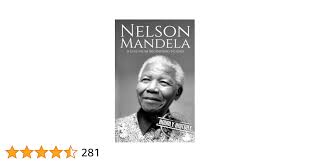The Enduring Legacy of Nelson Mandela

Introduction
Nelson Mandela remains one of the most significant figures in modern history, renowned for his role in the anti-apartheid movement and his commitment to justice and equality. As the first black president of South Africa, Mandela’s impact transcended his own country, inspiring freedom movements across the globe. Understanding his contributions is vital, especially in today’s world where issues of race, justice, and equality continue to dominate public discourse.
Key Events in Mandela’s Life
Born on July 18, 1918, in the Eastern Cape of South Africa, Nelson Mandela grew up in a society marked by racial division. His activism began in earnest after joining the African National Congress (ANC) in 1943. By the 1960s, Mandela had risen as a prominent leader advocating for armed resistance against the apartheid regime.
In 1962, he was arrested and sentenced to life imprisonment in 1964 after being convicted of sabotage. Mandela spent 27 years incarcerated, primarily on Robben Island, where he became a symbol of the struggle against apartheid. His release in 1990 marked a turning point in South African history, laying the groundwork for democratic elections in 1994, where he was elected the country’s first black president.
Impact on South Africa and Beyond
As president, Mandela prioritized reconciliation, nation-building, and combating poverty. His focus on forgiveness rather than revenge helped avoid a potentially bloody conflict as apartheid ended. Mandela’s leadership style and commitment to peace resonated globally, reinforcing the idea that dialogue and negotiation are essential in resolving conflicts.
Internationally, Mandela became a powerful advocate for human rights, drawing attention to issues such as poverty, education, and health. He used his platform to support various causes, including the fight against AIDS, which has disproportionately affected the African continent. His humanitarian work has inspired countless individuals to continue the fight for justice worldwide.
Conclusion
Nelson Mandela’s legacy is one of resilience and hope. His life teaches us that change is possible through perseverance and commitment to justice. Today, as we reflect on his contributions, it is essential to remember that the struggle for equality and fairness continues in various forms across the globe. By celebrating Mandela’s ideals and learning from his journey, we can contribute to creating a more equitable society. The lessons from his life are not only historical but are also a call to action for current and future generations.









